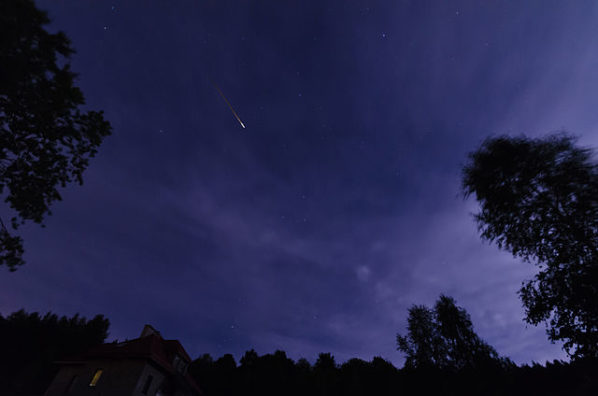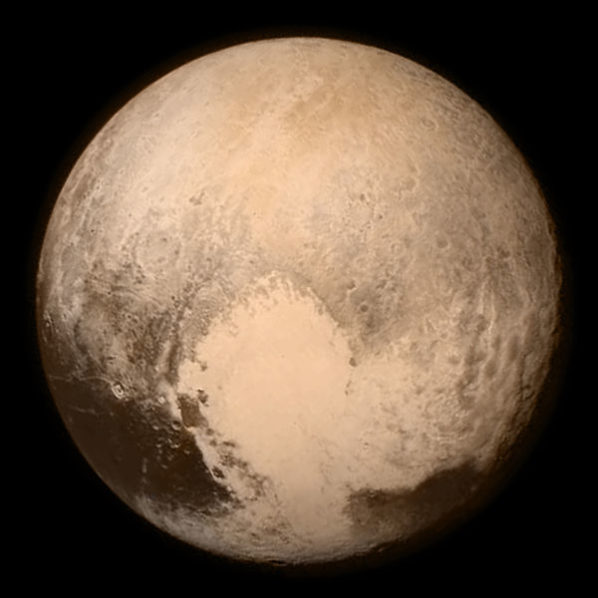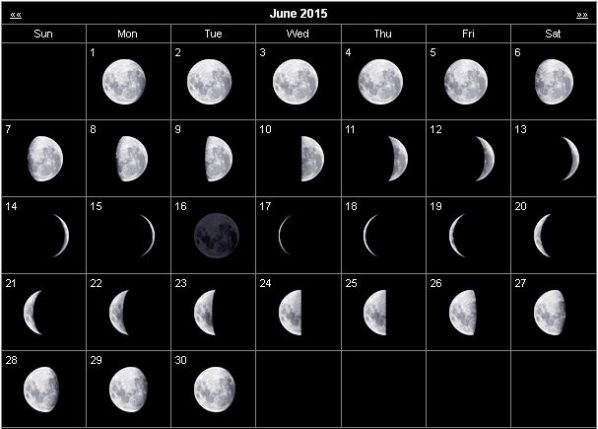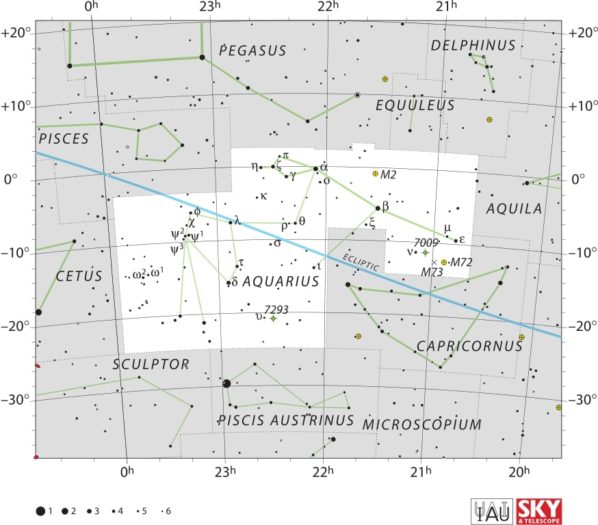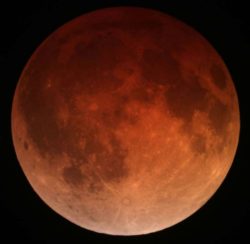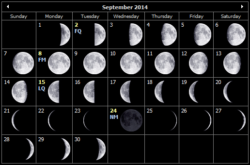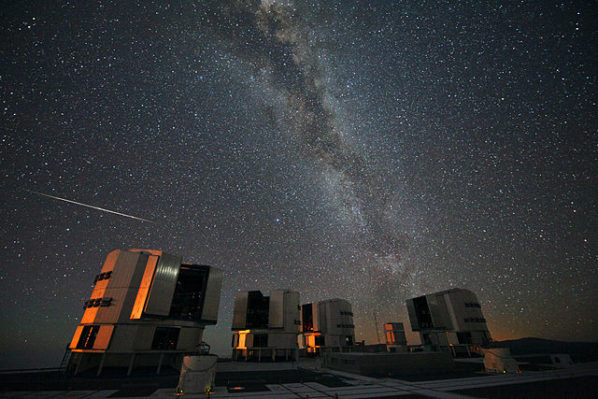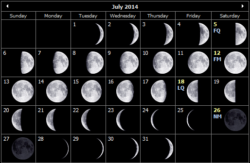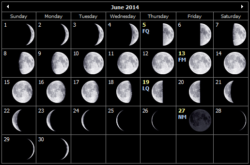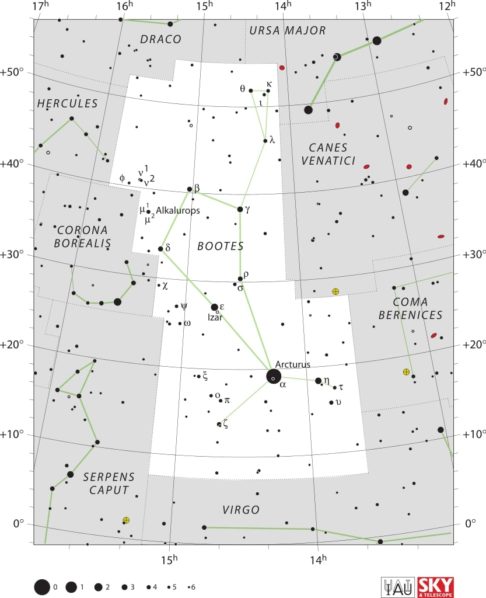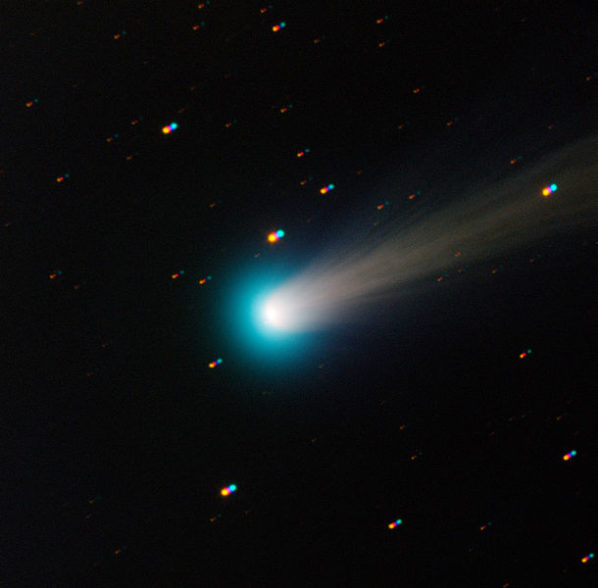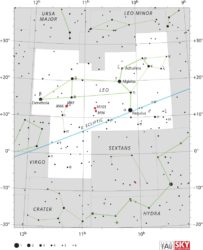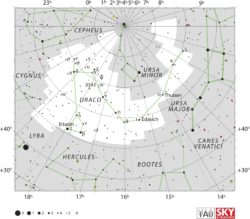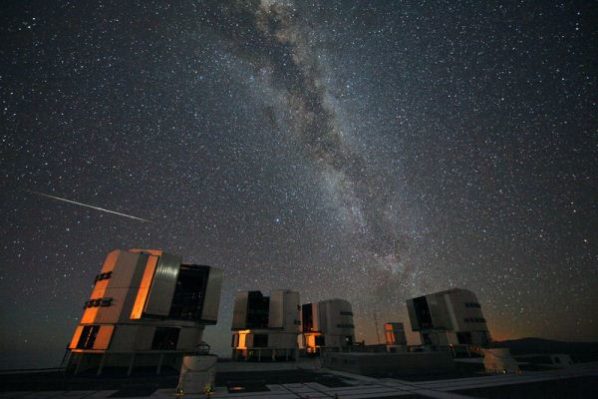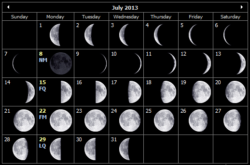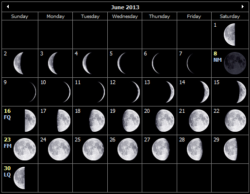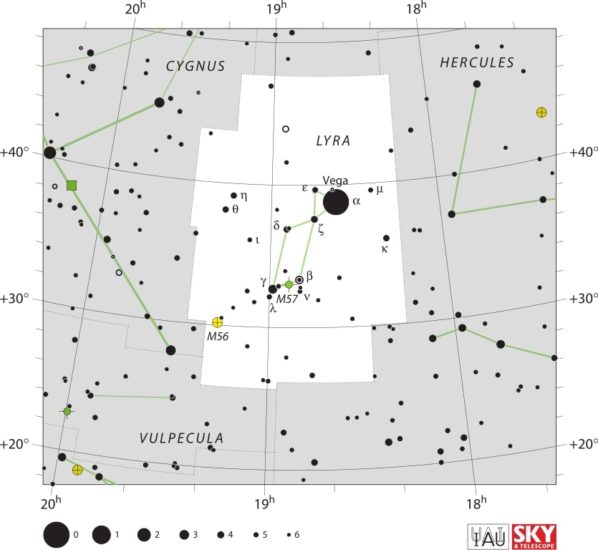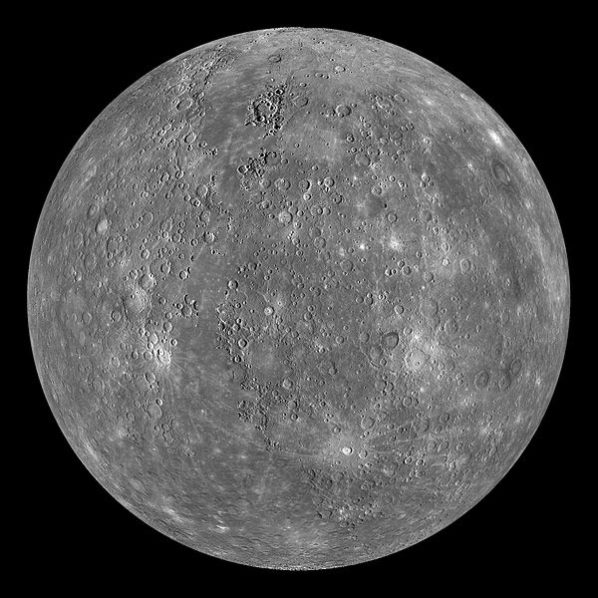Monthly Stargazing Calendar for August 2015
This month on the night of August 12 and 13 we will witness the Perseids meteor shower, which is one of the best meteor showers to observe, producing up to 60 meteors per hour at its peak. Some meteors can also be seen from July 17 to August 24. It originates from debris produced by comet Swift-Tuttle, which was discovered in 1862.
Monthly Stargazing Calendar for July 2015
On July 14 NASA's New Horizons spacecraft is scheduled to arrive at Pluto after a nine and a half year journey. It was launched on January 19, 2006 and will be the first spacecraft to visit Pluto. New Horizons will give us our first close-up views of the dwarf planet and its moons.
Monthly Stargazing Calendar for June 2015
On June 6 the planet Venus will be at greatest eastern elongation. Venus will reach greatest eastern elongation of 45.4 degrees from the Sun. This is the best time to view Venus because it will be at its highest point above the horizon in the evening sky. Look for the bright planet in the western sky after sunset.
Monthly Stargazing Calendar for May 2015
Early this month, on the night of May 5th and 6th we will witness the peak of the Eta Aquarids meteor shower. It is an above average shower, capable of producing up to 60 meteors per hour at its peak. However most of the meteors can be seen in the Southern Hemisphere. For the rest of us in the Northern Hemisphere, the rate can reach about 30 meteors per hour.
Monthly Stargazing Calendar for October 2014
On October 8 we will witness a total lunar eclipse. Such an eclipse occurs when the Moon passes completely through the Earth's dark shadow, or umbra. The Moon will gradually get darker and then take on a rusty or blood red color. The eclipse will be visible throughout most of North America, South America, eastern Asia, and Australia.
Monthly Stargazing Calendar for September 2014
This month will be rather uneventful when it comes to astronomical events except for the September equinox on the 23rd at 02:29 UTC. The Sun will shine directly on the equator and there will be nearly equal amounts of day and night throughout the world.
Monthly Stargazing Calendar for August 2014
Tonight on August 12 and on the morning of August 13 the Perseids meteor shower will peak. It is one of the best meteor showers to observe, producing up to 60 meteors per hour at its peak. Some meteors can also be seen from from July 17 to August 24.
Monthly Stargazing Calendar for July 2014
This month will be a rather quiet one, when it comes to astronomical events. However by the end of the month, on the night of July 28 and 29, the Delta Aquarids meteor shower will peak. It is an average shower that can produce up to 20 meteors per hour at its peak.
Monthly Stargazing Calendar for June 2014
After a few months break, we are back with our monthly stargazing calendar series. On June 7 there will be a conjunction of the Moon and Mars. The two celestial bodies will get as close as two degrees of each other in the evening sky. The gibbous moon will be at magnitude -12.2 while Mars will be at magnitude -0.8.
Monthly Stargazing Calendar for January 2014
On January 5 the planet Jupiter was at Opposition. This means that the giant planet was at its closest approach to Earth and its face was fully illuminated by the Sun. The weeks preceding and following this event are the best time to view and photograph Jupiter and its moons.
Monthly Stargazing Calendar for December 2013
Last month on Thanksgiving day comet ISON made a close approach to the Sun and unfortunately disintegrated in the process. It is possible that small pieces of the comet survived this encounter and if so, they will pass near the Earth by the end of this month.
Monthly Stargazing Calendar for November 2013
Earlier this month there were two major astronomical events: a hybrid solar eclipse on November 3rd and the Taurids meteor shower peak on the night of November 4 and 5. If you missed those two events, don't worry, there are two more coming up this month!
Monthly Stargazing Calendar for October 2013
Tonight (October 7 - 8) is the peak of the Draconids meteor shower. It is a minor meteor shower producing only about 10 meteors per hour during the peak, but some meteors can be seen one day before and after the peak. It originates from dust grains left behind by comet 21P Giacobini-Zinner, which was first discovered in 1900.
Monthly Stargazing Calendar for August 2013
Tonight (August 11 - 12) is the peak of one of the largest and perhaps one of the most famous meteor showers of the year, the Perseids meteor shower. It can produce as many as 90 meteors per hour at its peak but some meteors can be seen from July 17 to August 24. The first quarter moon will set shortly after midnight leaving dark skies for what should be an excellent show.
Monthly Stargazing Calendar for July 2013
This month there will be only one major astronomical event. On July 27, 28 we will witness the Southern Delta Aquarids meteor shower. It is an average shower that can produce up to 20 meteors per hour at its peak on the night of July 27 and morning of July 28, but some meteors can be visible from July 12 to August 23.
Monthly Stargazing Calendar for June 2013
Unlike last month, this won't be a such an eventful month when it comes to astronomical events. Mercury will be at its greatest eastern elongation and then we will have the June solstice. We will also have the largest full moon of the year.
Monthly Stargazing Calendar for May 2013
May 2013 stargazing events: There will be a meteor shower, a solar eclipse, a conjunction of Venus and Jupiter, and a penumbral lunar eclipse.
Monthly Stargazing Calendar for April 2013
This month will be quite eventful and will have many interesting astronomical events. First of all, on April 14 we will witness the conjunction of the Moon and Jupiter. The Moon will appear to pass about two degrees of the giant planet Jupiter in the evening sky. The crescent moon will be at magnitude -10.6 and Jupiter at magnitude -2.1.
Monthly Stargazing Calendar for February 2013
This month will be the best time to see Mercury. Usually the planet is very hard to observe because it orbits very close to the sun and it can only be seen at dawn and dusk. However on the evening of February 8, Mercury will be seen within less than 0.4 degrees of the much-fainter planet, Mars.
Monthly Stargazing Calendar for January 2013
On the night of January 3 and 4 the Quadrantids meteor shower will peak. It is an above average shower, with up to 40 meteors per hour at the peak. Some meteors can be visible from January 1 - 5. Unfortunately the near last quarter moon will hide many of the fainter meteors with its glare.

